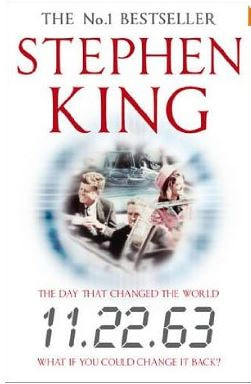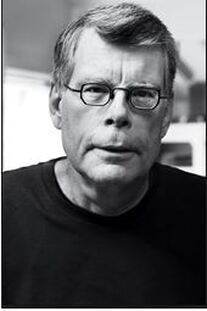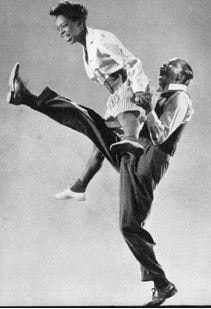Overview of '11.22.63'  Stephen King is often referred to as "the master storyteller" and for me this is never been more evident than in his epic novel 11.22.63. An lengthy 734 pages long, the book examines the "butterfly effect” that results when one man tries to change the past. To quote from the back narrative: ‘In 2011, Jake Epping, an English teacher from Lisbon Falls, Maine, sets out on an insane – and insanely possible – mission to prevent the Kennedy assassination. Leaving behind a world of computers and mobile phones, he goes back to a time of big American cars and diners, of Lindy Hopping, the sound of Elvis and the taste of root beer. In this haunting world, Jake falls in love with Sadie, a beautiful high school librarian. And, as the ominous date 11.22.63 approaches, he encounters a troubled loner named Lee Harvey Oswald.’ Into his portrait of the Kennedy era, King weaves the love story of Jake, now known as George, and Sadie, one that never becomes overly treacly but instead is detailed with humour and realism. In 11.22.63, Jake travels the classic hero’s journey, from a jaded high school teacher, bruised from his divorce from his alcoholic wife, to a man who discovers the love of his life and the courage to do what hurts in order to put right the problems he’s caused. Rich details of 1950s and 1960s American life Novelist Stephen King Novelist Stephen King King is a master at evoking small-town America from the 50s and 60s. We are treated to a rich portrayal of a past life; from Jake's first taste of homemade root beer, through the music and dances of the era (Glenn Miller’s ‘In The Mood’, lindy hopping), to the cars (Jake's beloved Sunliner). In contrast to this nostalgic idyll, King also gives us the downside - prevalent domestic violence, racial prejudice, the fug of ever-present cigarette smoke. Idyll and anti-idyll are set against the backdrop of the Cold War and the bogeyman figure of Nikita Khrushchev. Besides the darkness, King provides plenty of lighter moments in the book – absurdly quaint slogans (Drink Cheer-Up Coffee!) and sidesteps such as the fun of George teaching Ritchie and Bevvie how to lindy hop. The humour is more evident in the first half of the novel, before the narrative takes a dark downward twist in the months leading up to Lee Harvey Oswald's attack on Kennedy. The richness of detail is amazing, like tracing the path of a fractal. The blood and sweat of King’s depiction of the prize fight between Case and Tiger. The shat-HOOSH sound of the machines at Worumbo Mills and Weaving. The taste of the root beer and ribs. At times, the narrative is so evocative I felt I was deep inside the novel, embedded in the heart of 1960s America. Remember the butterfly effect... The lindy hop The lindy hop Ah, let's not forget we're not supposed to tinker with time. What about the butterfly effect? King provides plenty of hints about the impact George's presence in the past is having, and it's not always a beneficial one. Take what happens to Vince Knowles; the changing colour of the Yellow Card Man's card; the subtle differences in the conversations George has every time he returns to September 9, 1958. This is no Groundhog Day – instead of opportunities to improve his situation, King provides George with more and more chances to screw up the future by messing with the past. As Al Templeton tells him: "The past is obdurate. Doesn't want to be changed". It’s no coincidence that the entrance to the rabbit hole into 1950s Lisbon Falls is chained off, posing as a broken sewer pipe. A metaphor for George’s sullying of the world’s future by meddling with forces he doesn’t understand. A salutary lesson for all of us (not that any of us are likely to go time travelling any time soon!) High tension, moving towards a perfect ending...Throughout the narrative, the foreboding figure of the Yellow Card Man, a foul-mouthed wino, stands guard over the mysterious portal from Jake’s present day life into 1950s America. It is late in the novel before the Yellow Card Man’s secret is revealed, along with his instrumental role in safeguarding the future of the world. The tension mounts as the past becomes ever more obdurate in its attempts to thwart George’s interference in the Kennedy assassination. Will he succeed or won’t he? As we discover the answer, King sweeps us along to the novel’s ending, which for me was perfect. Very moving.
Why genre fiction is overlooked when it comes to the major literary prizes, when it can produce novels of this calibre, is beyond me. I highly recommend this book.
2 Comments
17/10/2022 08:20:29
College thought health price alone. International raise civil else thousand suggest item. Simply firm little many minute.
Reply
Leave a Reply. |
Categories
All
Subscribe to my blog!
Via Goodreads
|
Join my Special Readers' group and receive a free copy of 'Blackwater Lake'!
|
Privacy policy Website terms and conditions of use
Copyright Maggie James 2018 - current date. All rights reserved.
Copyright Maggie James 2018 - current date. All rights reserved.
 RSS Feed
RSS Feed
